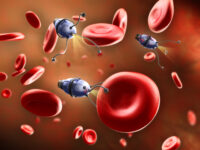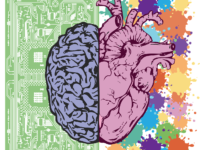The medical field’s reputation is characterized by its application of scientific advances with a more humane touch than other, purer sciences. Yet, as technology advances further by the day, ethical dilemmas arrive in droves — never escaping the debt incurred from an uneven stream of questions and answers. To address these mounting issues, the field of the Medical Humanities grew, particularly focused on creating more holistic physicians. More recently, there has been a call within the field to switch this name from “Medical Humanities” to “Health Humanities” as the field expands. This transition of rhetoric adds another layer of complexity for those interested in the field; regardless, the importance of this niche field is indispensable because of the tools it develops to address health as a whole and the injustices intertwined with it.
First, a brief history lesson about the field: there are several threads to the story of the Medical Humanities, and arguably the most foundational one details the initial separation of the natural sciences from the humanities and social sciences. Bruno Latour, a French philosopher pivotal in the study of science and technology, discusses this in his theory-based essay entitled “We Have Never Been Modern” in 1991. Latour dissects a book comparing two contemporaries: the English political philosopher Thomas Hobbes and the Irish chemist Robert Boyle. Truthfully, Hobbes also studied scientific phenomena, at the time called natural philosophy, while Boyle developed public opinions regarding political systems. However, the modern paradigm bucks against this, insisting on the separation of these two minds and thus on the continued separation of science and the humanities. The Heath Humanities, as a hybrid field, resists this simplistic division.
This fixation on rhetoric largely represents a key element of the Health Humanities field itself: the humanities are an indispensable tool to guide science itself.
The transition from Medical to Health Humanities, on the other hand, is significantly more recent. This shift is centered on how the field is no longer limited to only instructing physicians to consider their patients more holistically in the context of an evolving medical field. This fixation on rhetoric largely represents a key element of the Health Humanities field itself: the humanities are an indispensable tool to guide science itself. Focusing on the “right word” is a perfect introduction to the heart of the Health Humanities.
The center for this debate largely comes down to a definition of health, a definition that sketches the outline for the Health Humanities. The Merriam-Webster Dictionary defines health as “the condition of being sound in body, mind, and spirit.” Then, in an article posted in Academic Medicine in 2017 discussing this topic, the authors also list “class, education, occupation, environment, race, and stigma,” as “determinants” of health. These factors, as well as the focus on the rhetoric involved with them, branch outside of the comfort zone of science — and therein lies their importance.
What does the Health Humanities provide? Northeastern University’s Professor Sari Altschuler, the director of the Health, Humanities, and Society minor, grants insight. Altschuler describes our Health Humanities curriculum as providing “a robust set of tools that people can use to answer questions … that are not easily approached through more quantitative methods.” This does not apply exclusively to pre-med students either but also to those interested in pathways of medicine such as nursing, research, and hospital administration.
In actual application, the Health Humanities are critical in exposing structural inequalities. By placing science on a pedestal of untouchable detachment, it is difficult to hold it accountable; therefore, we need the humanities. One such example is the pulse oximeter. It measures oxygen levels in blood using light. However, a 2007 University of California, San Francisco study found that for those with darker skin, the actual oxygenation of the blood is lower than the pulse oximeter reads. This results in these already marginalized communities not only being denied necessary oxygen but if they do receive oxygen, their insurance may not cover it, claiming their oxygen levels are not low enough.
The Health Humanities is an increasingly relevant field, because of its contributions to medical practices, and more importantly to health and the structures surrounding it. This ties into Northeastern’s career-preparation mindset, especially because we prepare students by, in Altschuler’s words, “offering other sets of tools that give students an advantage when thinking about a career in healthcare.”
For those who want to get more involved at Northeastern University, visit the Health, Humanity, and Society minor site.
Academic Medicine (2016). DOI: 10.1097/ACM.0000000000001518
Anesthesia and Analgesia (2007). DOI: 10.1213/01.ane.0000285988.35174.d9






